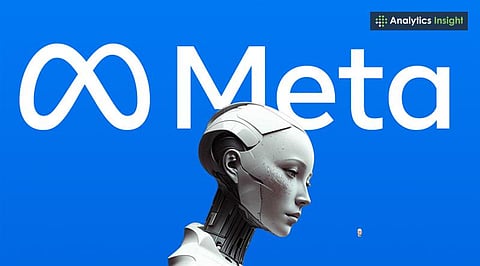

Meta has taken a bold step toward shaping online commerce and customer engagement. On October 2, 2025, the tech giant announced its Business AI, a generative AI agent that is designed to help brands automate customer service and guide product discovery. Additionally, it aims to drive conversions across Meta’s platforms as well as external websites.
The company announced that the new AI agent is designed to provide businesses with personalized assistance across all the Meta platforms, including Facebook, Instagram, WhatsApp, and third-party websites. This revelation hints at an intensifying race in AI-driven agentic commerce.
Meta’s Business AI is a branding sales assistant that can be embedded within Facebook and Instagram ads. It is also useful when integrated into Messenger or WhatsApp. In fact, Business AI can be associated with a merchant's very own website.
It draws on a company’s product catalogue, prior ad campaigns, social content, and site copy to train the conversational model, allowing it to respond to customer queries about pricing, sizing, reviews, or returns.
During the press briefing, Meta’s head of business AI, Clara Shih stated, “We are going beyond ads and beyond Meta to help businesses drive impact across their customer experiences and customer operations.”
At launch, Meta is making this generative AI tool free for businesses to use inside ads. However, third-party websites using the extension may incur a nominal fee. According to Meta, the goal is to go beyond the traditional sales funnel, from click to conversation, by letting AI get into each step to reduce drop-off.
Also Read: Meta Introduces AI-Powered Dating Assistant: Here’s What You Need to Know
How Does Meta’s Offering Compare to Amazon, Google, and Others?
Meta is not alone in this race. Recently, Amazon also introduced enhanced agentic AI tools for sellers, built on its Bedrock infrastructure. These tools help with inventory predictions, ad generation, and proactive marketplace assistance. Precisely, Amazon’s Seller Assistant is designed to allow merchants to do more end-to-end tasks with minimal human intervention.
In the meantime, Google also jumped into this sphere of advancing its AI agents. With Gemini Voice and other conversational models, the tech giant is advancing its own conversational and commerce AI initiatives.
Not all the AI tools are positioned as customer service agents, but the moves of these major providers support a shared vision: bringing AI agents that mediate between users and commerce systems.
Meta’s entry into AI-driven commerce is exciting, but it also warrants caution. On the brighter side, Business AI lowers the technical barrier for a brand to adopt conversational commerce. On the flip side, Meta's lofty AI ambitions, using these interactions to target ads and recommend content, may pose a threat to how the user data is being handled.
Considering it as a bigger strategy, the move is a pivotal escalation toward fighting for the AI commerce infrastructure. If Meta's Business AI proves to be effective, it might stir the whole market away from traditional chatbots to completely autonomous agents.
